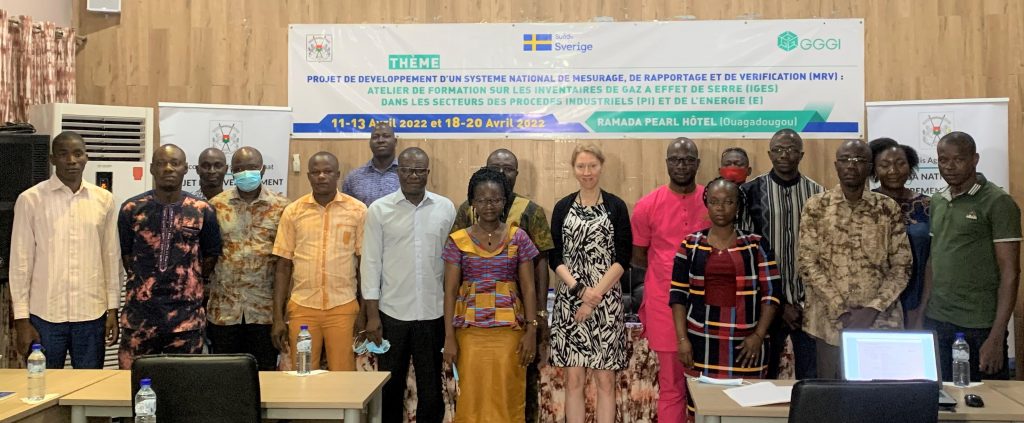From 11th – 13th April and 19th – 21st April 2022, the national institute of statistics and demography (INSD) in collaboration with the Global Green Growth Institute held training workshops on the methods used to elaborate greenhouse gas inventories (GHGI), specifically in the energy and industrial processes sectors.
The workshops aimed to explain the methodology on GHG emission/removal estimation according to Burkina Faso MRV Greenhouse Gas Inventory (GHGI) manual (https://mrv-burkina.bf/IMG/pdf/21153_gggi_mc781.pdf.) developed accordingly to 2006 IPCC guidelines, and discuss main sources of data for each sector. In addition, real data was collected by participants and simulations were carried out using the GHGI excel worksheets. Finally, participants provided recommendations to strengthen the data collection system for regular GHG inventories in Burkina Faso.

A group of participants pictures for the energy sector
Reducing carbon emissions requires a good understanding of their sources and sinks. GHG inventories makes it possible to understand precisely which activities contribute most to emissions and why. Understanding this can help policymakers devise sound and realistic strategies and policies to tackle climate change and global warming.
The deputy country representative of GGGI, Laura Jalasjoki affirmed that “The understanding of GHGI techniques will equip national actors for future inventories and prepare the country to conduct them as recommended at the international level”.
The MRV project
The “Development of a Measurement, Reporting and Verification (MRV) System in Burkina Faso” project is implemented by GGGI with the financial support of the Swedish Cooperation (SIDA). The main objective of this 36-month project is to support Burkina Faso in meeting the requirements of the Enhanced Transparency Framework of the Paris Agreement, with a specific focus on the MRV of actions, which includes both mitigation and adaptation actions undertaken by the country.